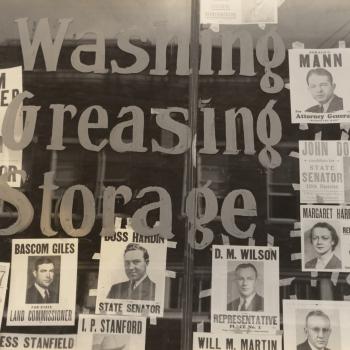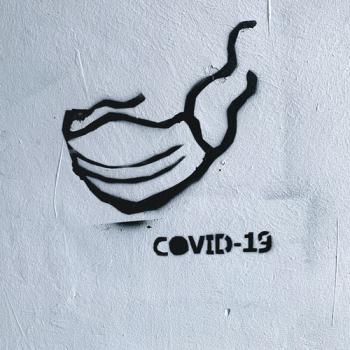[Read the beginning of our interview, reprinted from Ethix, in yesterday’s post.]
 Why did you start TriLinc Global?
Why did you start TriLinc Global?
I wanted to be able to use all of my experience, my contacts, and everything that I’ve developed in my 30-year successful career on Wall Street to do good in the world. That’s the simple answer.
The bigger story is, I wanted to use the rest of my life to serve God. I used to always think that in order to really do that you had to be a missionary or a pastor or you had to do something that was extremely self-sacrificing. After I retired from Deutsche Bank, I went through a period of three years building my relationship with God trying to figure out what I should do with the rest of my life. I realized it is God who has given me all of these talents, skills, and resources, and frankly, I just wouldn’t be good at doing a lot of those other things. The best value that I can bring to the world right now is to deliberately use my talent, skills, and resources to help the world through business. I’ve come to a place in my life where I could feel good about resuming what I had done before, but decided I would rather apply all of that learning and those skills and those contacts to something that helps the world in this significant way.
The best value that I can bring to the world right now is to deliberately use my talent, skills, and resources to help the world through business.
U.S. Job Creation?
The middle class seems to be going away in the United States. Does your approach apply to addressing this issue as well?
That’s a great question and we’ve been asked that more and more lately. All of our funds will be global so they can be invested anywhere, including the U.S. While our primary focus is developing economies, where the opportunity and impact are often the greatest, the current condition of the U.S. banking sector has created an opportunity for us to invest locally in underserved communities.
What, in your view, are some of the things needed to create more middle class jobs in the U.S.?
I am very much a proponent of structures, whether it is tax incentives or regulatory structures that stimulate entrepreneurial small business. I find the current environment lacking in this respect. It goes back to why we’re focused on supporting small business in other countries. At the bottom of it, everybody is driven to want to take care of themselves and their families. People want to be successful and if they can generate something, then they’re going to do that. If you look at U.S. history, you see a story of entrepreneurs, people who come here to succeed because they want to do it for themselves. They don’t want government to do it for them.
My belief is that it’s better to create an environment where entrepreneurs are empowered to create their own success. That is not to say that we should be free from regulation or oversight. That’s not good either.
Every time I hear someone say we don’t need regulation, I suggest they try to set up a business in the Central African Republic.
Exactly. There’s a balance, and anytime you get out of balance it creates a problem. That is a very good example.
With impact investing, you are measuring not just the money the investor can earn, but also the way this money supports communities. This seems consistent with a statement that Roger Lowenstein made about banks in his book The End of Wall Street: “The proper end of Wall Street is to oil the nation’s business; it became, in the bubble era, a goal in itself, a machine wired to inhuman perfection,” p. 297. How do you avoid the trap of starting with this outward objective and then falling back into the objective of making lots of money?
Balance is once again crucial here. For a business to sustain itself, it needs to be profitable. Thus, profitability is a critical driver of sustainability. The presence of a profit motive is not the problem. It’s when that is the only motive that problems arise.
For a business to sustain itself, it needs to be profitable.
Aren’t you creating a virtuous environment as well by putting pressure on your competitors to do the same?
Exactly. Even with our impact reports, we want complete transparency and accountability. We’re going to set the standard high so that anyone else who comes in will have to do likewise. We’re not saying we shouldn’t make money, because we should. It keeps us motivated and interested and pays our bills. But we have an objective beyond money. We look to serve our real purpose, which is to reduce global poverty and promote a more sustainable world by providing growth capital to responsible businesses. As TriLinc’s leader, I need to keep living up to that purpose of changing the world through capital resources.
How do you instill this into your team so this goal is not just dependent on you?
You ask a good question because I want this to outlast me. It’s got to be instilled in every person we hire. I’ve been very careful about the character of the people that we bring in. We’ve had the opportunity to bring in some very talented and experienced people who ultimately just wouldn’t represent us well. They could do the job, but at the end of the day there’s a cost to not having everybody absolutely committed to this purpose and cause. We talk about this all of the time. We do volunteer work together as a company to try to keep everybody focused on the goal of serving others.
Stay tuned for an upcoming post on what Nelund thinks about banks being “too big to fail” and what she’s learned working as a woman in a male-dominated industry! Kind permission is granted by Seattle Pacific University and the Institute for Business, Technology, and Ethics for the use of this material from Ethix magazine, where it first appeared March 2012.













